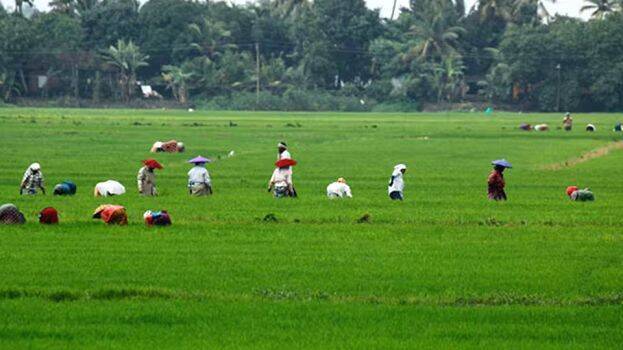

The recent amendments to the Kerala Conservation of Paddy Land and Wetland Act were introduced by the government to assist ordinary people trapped in the complexities of this law. Over time, tens of thousands of acres of small and large fields, once cultivated with paddy, have gradually transformed into drylands. However, in official records, they continue to be classified as paddy fields. This creates significant challenges for ordinary landowners, as these lands remain unusable for purposes such as farming or construction due to their classification as paddy fields. The stringent provisions of the Paddy Land and Wetland Conservation Act have left the owners of such erstwhile paddy lands burdened, as they cannot utilize their land for any purpose. Considering longstanding requests and applications, the government finally introduced relaxations in the law. According to the amendment, individuals holding less than 25 cents of old paddy land are now permitted to reclassify the land for constructing houses or similar purposes. Moreover, no fee is required for reclassification of lands up to 25 cents.
With the amendment coming into effect, revenue offices were inundated with lakhs of applications. This surge in applications has posed a significant challenge for revenue offices. Unable to process the mountain of applications in a timely manner, special adalats (grievance redressal sessions) had to be organized. Despite these measures, approximately 276,000 applications are still pending decisions at the offices of RDOs (Revenue Divisional Officers) and Deputy Collectors. The Revenue Department is now considering making the adalats a permanent mechanism to address the backlog of land reclassification applications. They are also deliberating on expediting approvals for applications related to house construction. There are thousands across the state struggling to acquire land for residential purposes. If a piece of land owned by an individual is included in the paddy land or wetland list, then he/she will not be granted permission to build a house on this land. In fact, apart from agriculture, no other activity will be permitted on such land.
Recognizing the plight faced by ordinary citizens, the government is considering expediting approvals for land reclassification applications when the purpose is clearly identified as house construction. This is a welcome decision. If an amendment introduced with the intention of helping common people ends up entangling them further, necessary changes must be made without hesitation. The backlog of applications at revenue offices might have prompted the government to reevaluate the situation.
There is no need to indefinitely delay reclassification applications. If proper inspections and documentation are in place, approvals should be granted without delay. A simple field inspection can clarify matters, and necessary corrections in the records can suffice. According to the Agriculture Department, Kerala had approximately nine million hectares of paddy fields around two to three decades ago. This area has now dwindled to a mere two million hectares. Alongside other crops, paddy farming is nearing extinction in the state. While some vast paddy fields still remain under cultivation, the majority have turned into dry lands. Given the growing population and the increasing number of nuclear families, it is essential to make land available for residential purposes. Old paddy fields that have been lying fallow for years should be considered dry land and made usable for housing and other human needs. There is no need to hesitate in utilizing these lands responsibly to meet the demands of modern life.